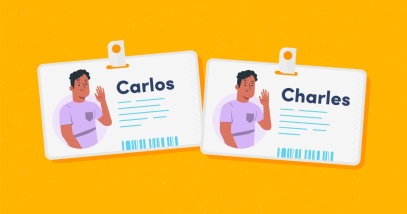The Mystery of Dummy Do

When English learners begin conversation classes, they’re presented right away with a bit of a puzzle. Anglophones dependably ask each other, “How are you?”, but for some reason we also sometimes ask “How do you do?” It’s not immediately clear why the word do has to appear twice in a question like that, or what the first do is really doing in common follow-up questions like “What do you do for fun?”
The extra do in such sentences is sometimes called a dummy verb, because it sort of just stands there and doesn’t actually do much. It’s often called a helper verb, too, though, and it certainly does help with a whole range of odd jobs in Modern English. It helps us every day in forming questions, adding emphasis, expressing negatives and delivering imperatives:
Questioning: What do you want to do tonight?
Emphatic: Well, I really do want to see that movie I mentioned.
Negative: I don’t know when it starts, though.
Imperative: Please don’t forget to check.
As commonplace as it is, the helper verb do is a surprisingly recent arrival. When we consult our oldest written sources, we don’t find Old English speakers saying things like “Do you know the answer?” They asked instead, “Know ye the answer?” They didn’t answer with “We don’t know,” either. They answered instead with constructions like “We know not.” The history of English thereby makes our dummy do look disposable—an impression confirmed by the example of Frisian. Modern Frisian is the closest living relative of Modern English, and like Old English it gets along just fine without the innovation of a helper do verb.
So when and why did the helper do manage to get everywhere in standard English? It first began to pop up in the English written record around the 1300s, but when it comes to the question of why, linguists find themselves in a situation that British linguist David Denison has politely called “an interesting diversity of opinion”.1
Some scholars have suggested that the appearance of helper do was connected to a wave of poetic experiment: having alternative sentence structures provided more rhyme and rhythm possibilities.2 So when the 14th-century poem King Horn uses helper do in the line His sclauyn he dude dun legge (“His pilgrim’s cloak he did down lay”), it might just represent a bit of poetic license taken to make the meter work. In a more recent century, Bob Dylan pulled the same kind of trick in his song “All Along the Watchtower”, by choosing to end a key line with “a wildcat did growl” instead of “a wildcat growled”. The former construction would sound awkward and unnatural in conversation, but it worked in its musical context since the rhythm and rhyme served nicely to set up the final line in which “the wind began to howl”.
A competing explanation for the arrival of helper do suggests that it became popular as a way to avoid some of the more tongue-twisting results of the inflected grammar used in premodern English.3 This theory’s proponents point out that it’s just easier to say “thou didst receive my message” than it is to say “my message thou received’st”.
Still others argue that the mysterious blooming of helper verb do in Middle English was a Celtic inheritance.4 English-speaking areas saw a significant influx of Celts around the same time, they note, and Celtic languages are known to use the same kind of periphrastic do verb construction that is rare across languages.
As a final plot twist, a few linguists have argued that the periphrastic do has always been around as a possibility in English, but it was excluded from the written record for a long time because it was seen as unrefined. (Maybe only dummies used the dummy do at first.)5 These scholars point out that children learning other Germanic languages can be found naturally experimenting with superfluous do verb constructions, and suggest that Old English writers avoided the construction as an unsophisticated choice that might sound childish. The only time the helper verb do appears in Chaucer’s Canterbury Tales, for example, is on the lips of a child (in “The Monk’s Tale”). Of course, these plot-twist theorists are still stuck with the same unsolved problem of explaining why respectable writers suddenly started using it in the 1300s.
However it happened, the helper do took root in the Middle English period, and by the time of the Early Modern English of the 1700s it had taken over completely as the new standard, serving a wide range of familiar functions:
Questioning: Do you like coffee?
Negative: I don’t drink it often.
Causative: Well, do help yourself to something.
Emphatic: I’ll have tea. I do enjoy a good tea!
These constructions all survive today, although some of them seem to be barely hanging on. People will assume you’re joking if you say “Do behave yourself” at a party, because the imperative do is now mostly limited to negative imperatives (“Don’t be like that”), and even then its applications are narrowing. It’s still technically acceptable for somebody to say “Don’t let’s fight,” for example, but English speakers can go their whole lives without using that kind of construction or even hearing it in a real conversation. All these continuing turns of the linguistic kaleidoscope serve as a colourful reminder that nothing is above reworking and repurposing in the evolution of language—not even something as elementary as our daily use of a verb like do.
-
Denison, David. English Historical Syntax. New York: Longman Linguistics Library, 1993, p. 255. ↩
-
Langer, Niels. Linguistic Purism in Action. New York: Walter de Gruyter, 2001, p. 25. ↩
-
Stein, Dieter and Gerritsen, Marinel, Eds. Internal and External Factors in Syntactic Change. Boston: Walter de Gruyter, 1992, p. 131-155. ↩
-
McWhorter, John. Our Magnificent Bastard Tongue: The Untold History of English. New York: Gotham Books, 2009, p. 22–3. ↩
-
Tieken-Boon van Ostade, Ingrid. The Origin and Development of Periphrastic Auxiliary do. NOWELE Journal, 16, p. 3-52. ↩




